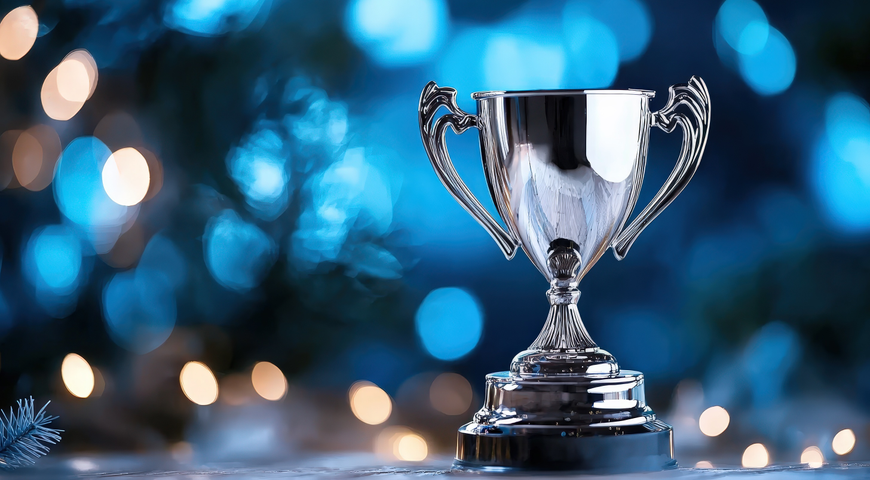As someone who has led his life on the cutting-edge of technology and science, Acronis Founder and CEO Serg “SB” Bell has made a lot of connections in the different scientific fields. Often, this means he is able to connect with some of the world’s leading scientific minds, which is how Acronis was able to get Dr. Rino Rappuoli, Chief Scientist and Head of External R&D at GSK Vaccines, to provide details about COVID-19 and the latest updates on its spread at Acronis’ COVID-19 Outbreak Virtual Conference.
During the presentation, SB discussed the efforts by two Nobel Prize winners who he is friends with. While Acronis is not involved in their efforts, they are exploring an intriguing method for combatting COVID-19 that could potentially help reduce the infection rate.
Nobel Prize winners approach coronavirus
The two scientists are Sir Konstantin Novoselov and Sir Andre Geim. Novoselov is a physicist and a professor at the Centre for Advanced 2D Materials, National University of Singapore. He is also a professor in the School of Physics and Astronomy at the University of Manchester.
Geim is also a physicist and a professor at the School of Physics and Astronomy at the University of Manchester. He also is a professor of Physics at the National Graphene Institute.
Together they won the Nobel Prize in Physics in 2010 for their work on graphene, a material that holds a lot of promise for revolutionizing the world.
Interestingly, Geim is also the only person to receive both the Nobel and Ig Nobel prizes, the latter of which he won in 2000 for levitating a frog using its intrinsic magnetism.
Whether it’s their work in physics, developing new materials, or even levitating amphibians, Novoselov and Geim are respected scientists who are comfortable thinking outside of the box to problem-solve.
That’s the approach used in developing their new hypothesis for preventing COVID-19 cases.
Hypothesis of using amphiphilic molecules
Many viruses including the novel coronavirus (the technical name of which is SARS-CoV2) have a membrane that can easily be killed by amphiphilic molecules (or surfactants) – which includes things like soap.
That’s why medical professionals universally recommend frequent washing of hands to combat coronavirus infection. The soap’s amphiphilic molecules interact with the lipid membrane of the virus, destabilizing its structure and making it impossible for the virus to multiply.
Novoselov and Geim have presented the hypothesis that by inhaling amphiphilic molecules, we might be able to kill the coronavirus in the upper respiratory system – before it can affect the lungs and cause deadly acute respiratory distress syndrome (ARDS).
Since inhaling soap can cause stress on the human body, they are looking at other sources that can safely provide the same amphiphilic molecules.
There are many possible sources of amphiphilic/surfactants molecules beyond soap. One is Protein D, which is currently in trial, but there are also saponins (‘sapo’ is Latin for soap) present in decent concentrations in many health-food supplements, including green tea.
Since green tea inhalation is already widely used in medicine, Novoselov and Geim believe this established treatment might prove successful in stopping coronavirus infections from becoming full-blown cases of COVID-19.
Social clinical trials
To test this intriguing approach, SB noted that Novoselov and Geim are now working with other third-party organizations to recruit volunteers for a trial to see if green tea inhalation can successfully reduce coronavirus infection rates.
While Acronis is not actively involved in those trials, the Acronis Cyber Foundation is helping to develop a mobile app that will record and report the health conditions of trial participants. That way Novoselov and Geim can compare the results of those who followed the regimen of green tea inhalation against those who did not.
The goal is to begin the trials in hotspots like Italy and New York City, where it is important to prevent a second wave of COVID-19 cases.
Final thought
Any approach for combatting the novel coronavirus pandemic will require extensive testing to prove its efficacy before it can be widely rolled out. So, as a fellow scientist, SB said he is interested in supporting Novoselov and Geim’s work because he is intrigued by their innovative study and hopes they have found a possible way to prevent COVID-19 by inhaling green tea – an existing, all-natural practice that is already known to not have a negative health impact.
While hopeful of the new study, we do not advise treating the inhalation of green tea as a substitute for professional medical advice, diagnosis, or treatment. Always seek the advice of your physician or another qualified health provider with any questions you may have regarding a medical condition.
Disclaimer
The Acronis website does not contain medical advice. The contents of this website, such as text, graphics, images, and other material are intended for informational and educational purposes only and not for the purpose of rendering medical advice. The contents of this website are not intended to substitute for professional medical advice, diagnosis or treatment. Before taking any medications, over-the-counter drugs, supplements or herbs, consult a physician for a thorough evaluation. Always consult your physician for personalized medical advice. Never disregard or delay seeking professional medical advice or treatment because of something you have read on the Acronis website.
About Acronis
A Swiss company founded in Singapore in 2003, Acronis has 15 offices worldwide and employees in 50+ countries. Acronis Cyber Protect Cloud is available in 26 languages in 150 countries and is used by over 21,000 service providers to protect over 750,000 businesses.



